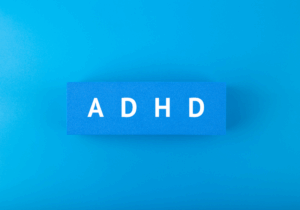Problematic substance use is a reality that affects millions of people around the world. Beyond occasional use, when the consumption of alcohol, legal or illegal drugs becomes compulsive or interferes with daily life, it becomes a situation that requires attention, understanding, and professional treatment.
The path to recovery is possible, but it is rarely traveled alone. Recognizing the need for help and having the right support system is key to overcoming dependency and building a healthier, more fulfilling life.
What does problematic substance use involve?
Problematic use or substance use disorder is characterized by:
- Loss of control over how often or how much is consumed.
- Tolerance: needing more of the substance to feel the same effects.
- Withdrawal symptoms when trying to stop.
- Disruption to daily life—relationships, work, health, or finances.
- Continued use despite negative consequences.
The substances most commonly associated with this disorder include alcohol, cannabis, cocaine, methamphetamines, prescription medications (such as anxiolytics or opioids), among others.
Sustained and untreated use can lead to numerous physical, emotional, and social consequences:
- Physical health deterioration: damage to the liver, heart, lungs, nervous system, and increased vulnerability to infectious diseases.
- Associated mental health disorders: depression, anxiety, psychosis, or personality disorders may worsen or be triggered by substance use.
- Family and social conflict: isolation, loss of relationships, violence, or legal issues.
- Academic or job failure: difficulty maintaining responsibilities or personal projects.
- Risk of overdose or death.
The longer the issue remains untreated, the more complex the recovery process may become.
Recovery is a comprehensive process that goes far beyond simply quitting.
It involves rebuilding personal, emotional, and social life and requires a multidisciplinary approach:
- Medically supervised detox: sometimes a medically monitored detox is necessary to manage withdrawal safely.
- Individual or group psychological therapy: helps explore the underlying causes of use, work on self-esteem and emotional health, and develop new coping strategies.
- Psychiatric treatment: may include medication to stabilize mood or manage anxiety.
- Therapeutic communities and support groups: such as Alcoholics Anonymous (AA) or Narcotics Anonymous (NA), offer peer support from others going through similar experiences.
- Family intervention: families also need support and tools to help recovery without reinforcing harmful dynamics.
- Education and social reintegration: programs that promote a return to work, school, or community life with purpose.
The recovery process is not linear. There may be setbacks, relapses, or moments of crisis. That’s why professional guidance is essential to:
- Design a treatment tailored to the patient’s history and needs.
- Provide tools to manage emotions, cravings, or relapses.
- Strengthen internal motivation and the ability to sustain long-term change.
- Support the process without judgment, from a place of empathy and respect.
Beyond professional care, emotional support from family, friends, and the community plays a vital role in day-to-day recovery.
Problematic substance use does not define a person, but it does need to be addressed with responsibility and compassion. Timely treatment and professional support can make the difference between a stagnant life and one in transformation.
Recovery is possible. With help, with time, with patience. And above all, with the certainty that no one has to go through it alone.






